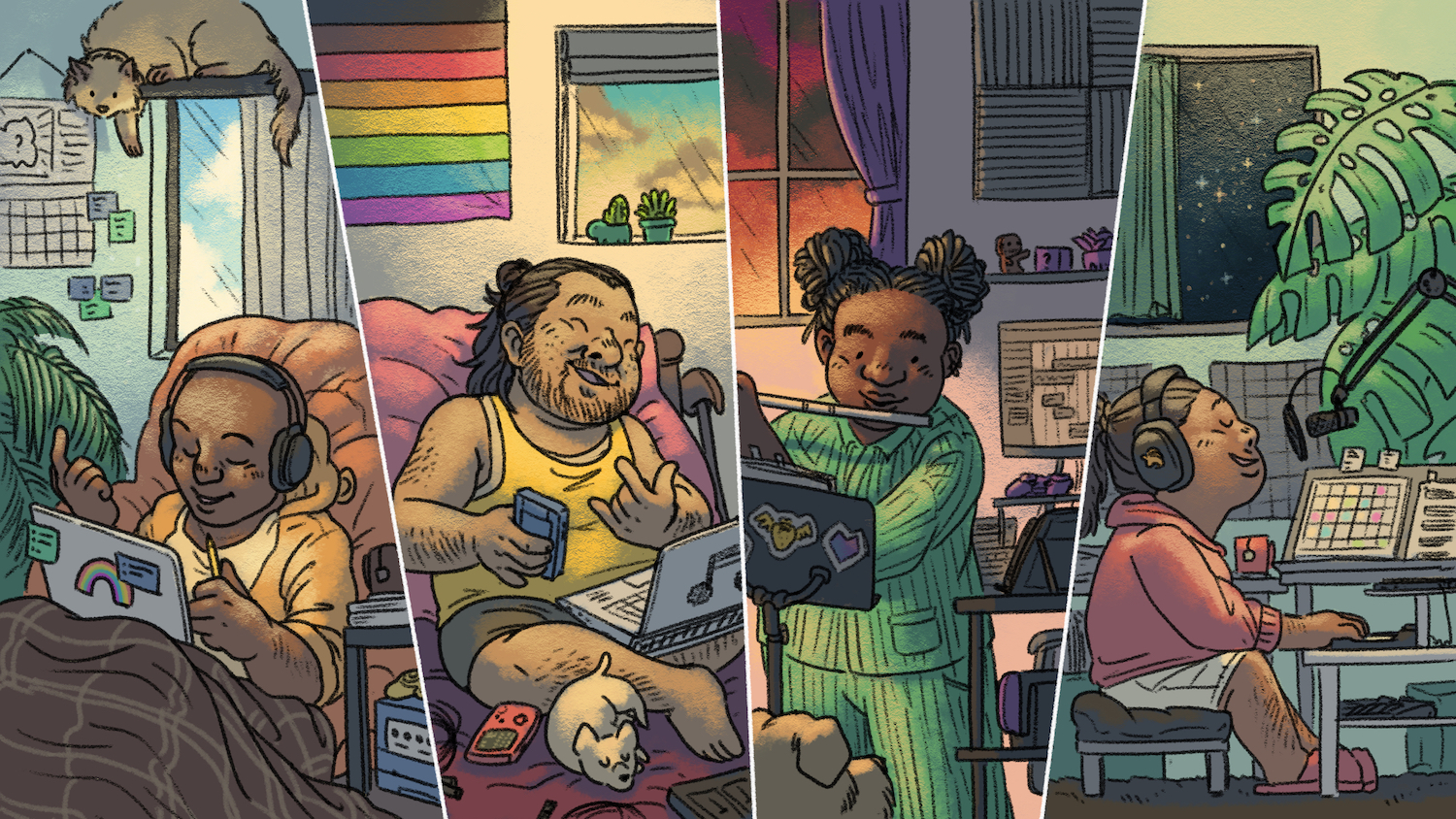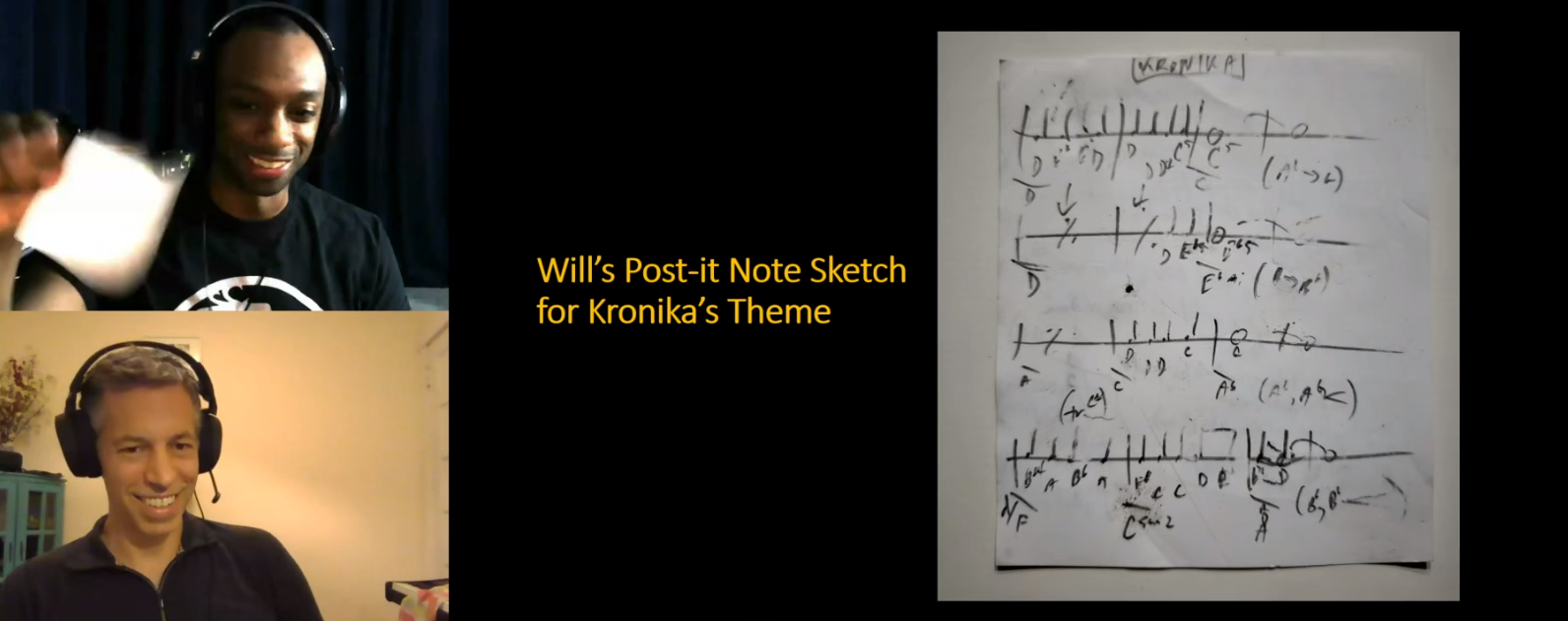8 things we learnt at High Score

APRA AMCOS’ High Score went virtual in 2020, with a diverse program that once again made it a highlight of Melbourne International Games Week. If you missed High Score, you can watch the stream on demand until November 2.
Throughout a day of keynotes, in-depth discussions on a game’s sound, and panel talks, one thing became clear: music plays a very crucial and special – if sometimes misunderstood and overlooked – role in the gaming experience.
So, let’s get into the top eight things we learnt at High Score: Composition and Sound Art for Gaming.
1. What games music does best: pulling focus and returning it
Conference opener Lena Raine captivated the streaming audience with her keynote that took a closer look at understanding what music does best in games: pulling focus and then returning it.
As the onscreen credited composer on Minecraft Netherworld Update (an acknowledgment usually reserved for pop star contributors or featured artists), Raine talked about how intensity of emotions plays an important role – music that takes you to a beautiful setting, a dark place or a joyful memory. She reminded composers to “always be mindful of that focus pull”.
2. Maybe don’t start composing by looking at a blank computer screen…
The best musical ideas might come to you in the shower.
Raine never starts a song sitting at a computer.
“I absorb everything I can about everything I am writing for…the emotions of the characters, the area, the narrative arc. And I sit on it for a bit,” she said.
It might be after coffee or in the shower that she comes up with things in her head by humming or thinking of melody or harmony ideas.
“It’s something to go to the computer with, an intention. A blueprint to work from.”
Mortal Kombat 11 composer Wilbert Roget II said in his presentation that he’s an old-school composer who keeps notebooks and pens in every room and on him wherever he goes so that he can write down musical ideas.
“You get ideas everywhere,” he said, “and more recently I started carrying waterproof Post-It notes in the shower.”

A High Score exclusive: ‘ Kronika’s Theme ’ was scored on a damp post-it note.
(Wilbert Roget II and Rich Carle discuss the sound of Mortal Kombat 11)
3. Composer as mind reader: managing feedback and revisions
Brooklyn-based composer Josie Brechner and Calliope Ryder, game runner at New Zealand’s Starcolt, discussed the sound of the Best Friend Forever, the “dog care, dating sim hybrid game, which is also super gay”.
Brechner spoke about how from the briefing and feedback process went.
“One of the best skills you can develop as a composer is reading between the lines and utilising feedback that isn’t super clear,” said Brechner.
There’s a difference with, “‘sad’ versus ‘grief sad’ versus ‘thoughtful sad’”.
If the feedback you’re getting is somewhat vague, do you keep asking for clarity or put forward your own ideas in subsequent rounds?
Brechner’s advice: “Like any new job, asking questions of your client or employer can seem scary. But if you’re nervous or unsure, keep asking.”
4. “Music is the door”
In the panel on ‘Music-led Games’ composers and developers talked about talking about music (very meta), specifically in games where music is a focus like in Final Fantasy.
Music will usually play a supporting role in “a normal game,” explained composer/developer Megan Carnes.
Studio head Wan Hazmer said in a music-led game, “music is key to delivering these experiences. A big part, a big chunk of what a user experience is”.
“Music is the door. We need to depend on the composers to communicate that,” Hazmer added.
Carnes said composers need to “learn how to communicate with the game dev without using strict music terms…talk in terms of energy, emotions”.
5. What makes a game ‘indie’?
“A very tiny budget,” according to Paulina Samy of Melbourne’s Dragonbear Studio. “Games are very expensive, and I think that’s why we make games so unique. We have to spread our resources in a creative way.”
How important is music in an indie game?
“It’s very important. If you can think of a single game you really loved, the music is probably a big element to it. The better your music is, the more your game stands out. So, it’s uncompromisable to have to think about how you are going to do your music.”
And attention to detail is highly important: the levels, the actual length of the game – it all shapes the music, Brisbane composer Clark Aboud (Slay the Spire, Kind Words) explained.
6. Get to know the people who make the indie games and be yourself
The teams are tiny – it might be just two people working on the game, communicating on email, Slack or Discord. Aboud suggested you let your personality come into your email, rather than be ‘too office’.
Samy mentioned how important personal connection is and that she has never hired a composer she hadn’t met first.
“I wouldn’t pick a composer I haven’t met and spent time with. Their vibe and what they bring to the game is immense,” she said, because the team works as a unit.
7. Music is a game’s entry point
UK game designer Claire Morwood’s Before I Forget is a game that explores dementia in the first- person, and like most of Morwood’s work, it got its start at a games jam.
Working with first-time games composer Dave Tucker, the score is somber and gentle.
For the music at the start, Morwood said: “We decided that you hear it as you pass the room with the door ajar. It’s the first music you hear in the game, so it has to make an impact.”
Even the smallest of details matter.
8. A closer look at humour with Dan Golding
Melbourne composer and academic Dan Golding (Untitled Goose Game) closed out the day with a keynote on humour in music. He should know about the topic, he composed music for the wildly successful Untitled Goose Game.
One takeaway on humour: it’s not easy from the scripting to the design to the music.
And, it shouldn’t be dismissed as trite.
Golding said that humour “doesn’t have to be at the expense of others”, in a counterpoint to a quote from Leonard Bernstein. Humour can help challenge expectations, break up the status, and re-consider genre.
High Score: Composition and Sound Art for Gaming is presented by APRA AMCOS, in partnership with the Victorian Government through Creative Victoria and the Victorian Music Development Office, and is part of Melbourne International Games Week.

































